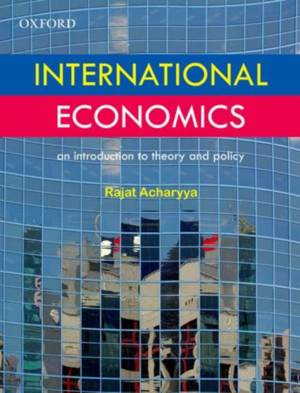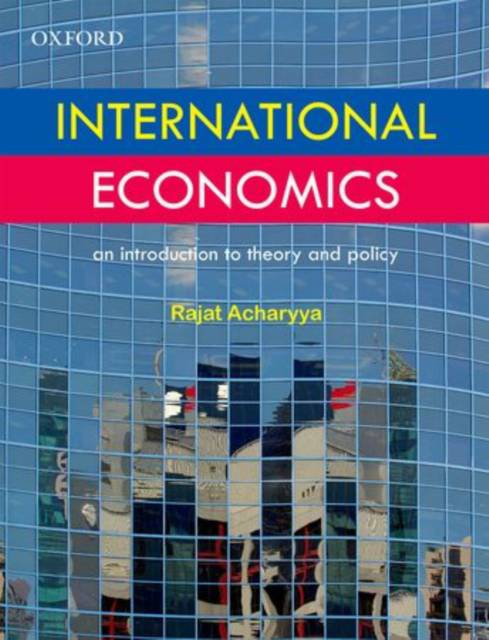
- Afhalen na 1 uur in een winkel met voorraad
- Gratis thuislevering in België vanaf € 30
- Ruim aanbod met 7 miljoen producten
- Afhalen na 1 uur in een winkel met voorraad
- Gratis thuislevering in België vanaf € 30
- Ruim aanbod met 7 miljoen producten
Zoeken
€ 34,95
+ 69 punten
Uitvoering
Omschrijving
Over the last three decades, there has been a greater interdependence between economies than ever before due to fragmentation and outsourcing of production processes, increasing mobility of people, international capital flows, and flexible exchange rate regimes. International Economics initiates students to these changes in the global economic scenario by combining current research and new perspectives with conventional theoretical wisdom. Complementing trade theories with relevant trade empirics, the book analyses a wide range of policy issues in the present wave of globalization relating to product standards and regulations; impact of environment on trade; labour and quality standards; bilateralism, regionalism, and multilateralism, with a focus on debates at the WTO; the growing expansion of service exports; and the linkages between trade and inclusive growth. Unlike most textbooks on the subject that begin with model-specific discussions, this book takes a distinctively different approach. It first introduces the basic principles underlying international exchange, trade, and exchange rate policies, and then goes on to offer alternative theoretical explanations for these principles by using specific models of trade. Accessible and up-to-date, the book offers handy study aids in the form of clearly defined summary concepts, keywords, case studies, problem-solving exercises, and suggested reading for students and teachers of international economics.
Specificaties
Betrokkenen
- Auteur(s):
- Uitgeverij:
Inhoud
- Aantal bladzijden:
- 600
- Taal:
- Engels
Eigenschappen
- Productcode (EAN):
- 9780198079767
- Verschijningsdatum:
- 25/10/2013
- Uitvoering:
- Paperback
- Formaat:
- Trade paperback (VS)
- Afmetingen:
- 180 mm x 239 mm
- Gewicht:
- 839 g

Alleen bij Standaard Boekhandel
+ 69 punten op je klantenkaart van Standaard Boekhandel
Beoordelingen
We publiceren alleen reviews die voldoen aan de voorwaarden voor reviews. Bekijk onze voorwaarden voor reviews.











